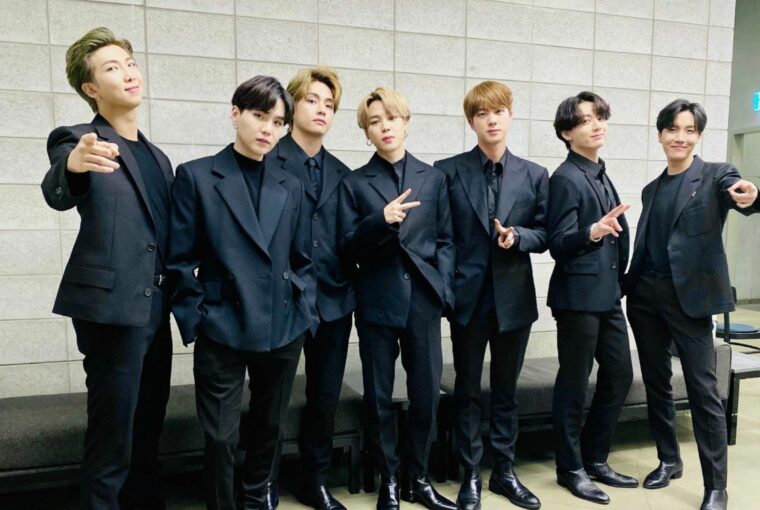During the darkest days of the COVID-19 pandemic, many sought solace wherever they could. For countless fans worldwide, K-pop supergroup BTS was a beacon of hope. A recent Dartmouth College study has now revealed that this wasn’t just a subjective feeling. BTS, in fact, played a pivotal role in enhancing public health outcomes during the pandemic. Their impact even overshadowed major health institutions such as the CDC, NIH, and WHO.
Herbert Chang, a professor of Quantitative Social Science at Dartmouth College, spearheaded the study during his graduate years at the University of Southern California. With access to the world’s most extensive Twitter dataset, Chang embarked on this research journey after observing people’s heavy reliance on digital content during the COVID-19 lockdowns. Although initially unfamiliar with K-pop, one of his co-authors was a fan. Their combined perspectives led to an exploration of BTS’ influence, especially during a time when the group’s global popularity was skyrocketing due to their musical success. Additionally, their advocacies, such as when they addressed mental health during a talk at the United Nations General Assembly, further highlighted their impact.
As researchers examined data from online discussions on public health and safety, they discovered that BTS had been the most effective and influential in spreading the message. A few years back, the World Health Organization launched the Wear A Mask campaign on social media. Despite its clear benefits to public health, mask-wearing became a contentious issue worldwide. However, the campaign witnessed a significant boost after a tweet from WHO Director-General Tedros Adhanom Ghebreyesus on August 22, 2020. He thanked the septet for reminding people to mask up, coinciding with the release of their hit single, “Dynamite.” This tweet became a sensation, with K-pop fans globally making it the most shared mask-wearing tweet.
Thank you, #BTS for the uplifting #BTS_Dynamite and for reminding the #BTSARMY and the rest of us to #WearAMask and take care of our health and well-being during this #COVID19 pandemic. pic.twitter.com/BxsSkYx3rS
— Tedros Adhanom Ghebreyesus (@DrTedros) August 21, 2020
BTS’ impact, by the numbers
In a recent interview, Chang delved deeper into the data, emphasizing the significant difference in reach between tweets that mentioned BTS and those that didn’t. A series of 16 tweets by the head of the WHO referencing BTS garnered nearly 234,600 retweets. In contrast, 2,140 other tweets without a BTS mention accumulated 282,650 retweets, indicating that tweets mentioning the septet achieved 111 times more virality.
The study also explored mask-wearing tweets across countries. The number of tweets with K-pop content spiked in Western countries, with the U.S. leading. But the biggest increase in virality was seen in the global south, particularly Southeast Asia and South America. According to the retweet data, Vietnam had a 3,840% increase (38.4 times more virality), South Korea a 3,190% increase, Philippines a 1,290% increase, Peru a 1,080% increase, and Argentina an 845% increase.
In the U.S., the most significant viral upticks, percentage-wise, were seen in South Dakota (52%), North Dakota (41%), Mississippi (39%), Missouri (39%), Utah (37%), Louisiana (37%), Wisconsin (36%), and Nebraska (33%). Chang’s team also noticed a surge in the use of the #WearAMask hashtag by right-leaning users after BTS appeared at the United Nations General Assembly.
BTS (방탄소년단) Speech at the 75th UN General Assembly
The fans’ involvement
Chang admitted his surprise at BTS‘ dominant presence in public health messaging. He emphasized that it wasn’t just BTS‘ influence as artists but also their fandom, the ARMY, that amplified the messages. “We observed the strength of their online communities. Social media networks aren’t just networks; they’re connections between users. We gauged the strength of these communities using specific algorithms,” he explained.
When asked about the depth of the fans’ involvement, Chang highlighted their tangible actions. He noted that when BTS concerts were canceled due to the pandemic, the ARMY redirected their ticket refunds to causes like the Black Lives Matter movement and UNICEF, raising over three to four million USD in just a few days.
Becky Pham and Emilio Ferrara at the University of Southern California, Los Angeles, also contributed significantly to this groundbreaking study. – K-Pop News Writer
Featured Image: At the height of the pandemic in 2020, BTS taped a message for the 75th United Nations General Assembly. Source: X/@JeonAngel_18.







